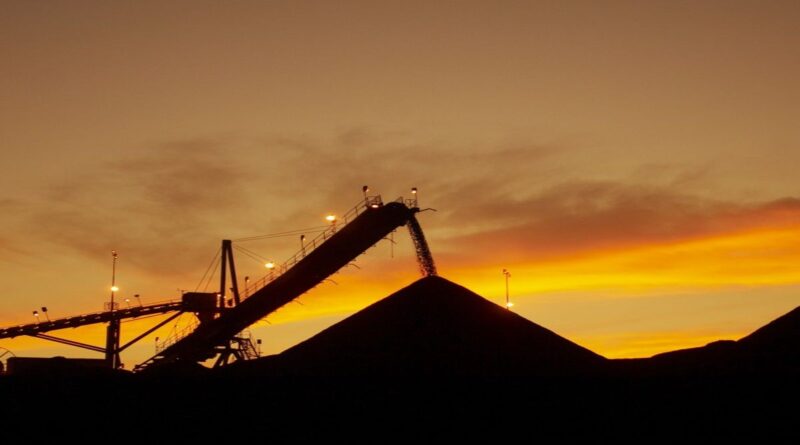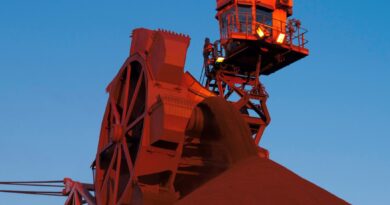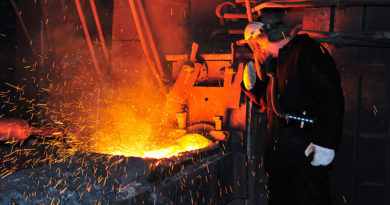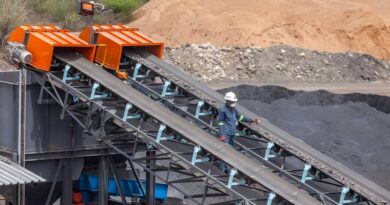Kumba produced 20% less iron ore amid lockdown
Kumba produced 20% less iron ore amid lockdownReflecting lower workforce levels in response to the Covid-19 lockdown, total iron ore production volumes at Kumba Iron Ore Company decreased by 20% to 8.5 million tonnes. This is due to the subsequent re-opening of operations with reduced workforce levels of c.50% and the ramp-up in production to normal run-rates in June.
Kumba Iron Ore produces a high-grade iron ore that is used in ironmaking. Iron ore is the key component in iron manufacturing, the most widely used of all metals. Kumba’s production process consists of: exploration; planning and building; mining; processing and blending; shipping; marketing and selling.
Sishen production reduced by 21% to 5.8 million tonnes and Kolomela’s by 17% to 2.7 million tonnes. Sales volumes decreased by 23% to 8.1 million tonnes due to Covid-19 logistics constraints affecting Transnet and poor weather conditions, as well as no domestic offtake.
Finished stock levels increased to 6.2 million tonnes from 5.6 million tonnes as at 31 March 2020 due to the impact of the Covid-19 restrictions at the port.
In the first half of 2020, the average lump to fines ratio in the Kumba product was 65:35 (H1 2019: 68:32), while the Fe content averaged 64.4% (H1 2019: 64.3%).
Kumba’s sister company within the Anglo American stable, Minas-Rio in Brasil reported increased iron ore production by 5% to 6.2 million tonnes, reflecting a continued strong performance, with P101 productivity initiatives supported by robust operational stability.
Current Covid-19 measures in place to safeguard the workforce and communities are not expected to significantly affect 2020 production. In the first half of 2020, the Fe content of Minas-Rio pellet feed product averaged 67.2% (H1 2019: 66.9%).
Full Year Guidance
Kumba production guidance is unchanged at 37-39 million tonnes, subject to the extent of further Covid-19 related disruption.
Minas-Rio production guidance is unchanged at 22-24 million tonnes, subject to the extent of further Covid-19 related disruption. The planned one month production stoppage to carry out routine internal scanning of the pipeline, originally scheduled for Q2, has been postponed to the second half of the year due to Covid-19 related constraints.




